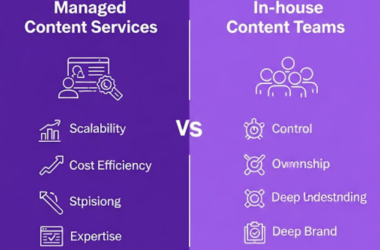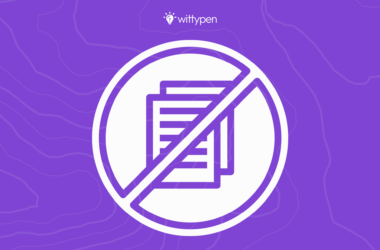For those who are planning to consider freelance writing, you may wonder: What is freelance writing? How does it work? Do freelance content writers make a good living?
Well, thanks to a survey by Payoneer, we just may have the answer. A freelance writer earns between $15 and $16 per hour globally on average.
We frequently connect successful jobs with working for others or moving up the corporate ladder. However, with freelancing, you can make your own!
Earning money as a freelance writer can be a fantastic side gig or even a full-time job. However, exactly what is freelance writing? Writing for clients as a freelancer differs from writing for an employer. You can independently set your hours and work from any location!
This blog explores everything you need to know about what is freelance writing. From requisite skills to potential challenges and tips to avoid them, let’s set the ball rolling!
How Does Freelance Writing Work?
Confused about where and how to start? Here are the basics!
Types of Freelance Writing Projects Leading the Market
While the content writing market is brimming with possibilities, beginners may feel a little overwhelmed when considering the projects they want to take on.
To help you get started, here are the major types of freelance writing jobs popular today!
1. Blogging
Writing content for a website and updating it frequently with blog posts in a particular niche is known as blogging.
Bloggers update their pages with new content that is entertaining, educational, or useful.
The article can cover anything from an individual’s biography to editorials meant to promote a brand or product.
2. Website Copywriting
It is the process of creating marketing materials such as social media posts, advertisement copy, and web content. Effective copywriting can hold readers’ attention and frequently prompt them to initiate an action, like filling out a form or making a purchase.
3. Whitepaper Writing
A white paper is a document designed to increase a business’s standing as an industry authority. This kind of document is written to highlight a business’s effective solutions to problems that impact any specific sector.
4. Ghostwriting
Writing content on behalf of someone else where your name is not displayed on the byline of the finished product is known as ghostwriting. It is a great option for experienced writers who enjoy working on collaborative endeavors and tackling a wide range of subjects.
Snapshot of a Freelance Writer’s Workflow Process
1 Finding Prospective Clients and Initial Pitching
Researching and identifying potential clients, crafting personalized pitches that highlight your expertise and services.
2. Discovery Meeting
This is a preliminary call to discuss the project requirements, timeline, and budget.
3. Terms and Ways of Payment
Drafting contracts that outline terms, including payment schedules, modes of payment, and deliverables.
4. Proposal for Project Agreement
Once the rates and quantity of assignments for a project are settled, freelancers can establish an agreement and send it to the client for signature.
5. Client Briefing
Final call to verify the requirements and guidelines, like added information on target audience, keywords, etc.
6. Start Writing
Thorough topic research, adherence to the topics mentioned, and maintaining proper tonality are basic requisites while writing content.
7. Final Delivery of Work
This includes submitting the final draft within the stipulated deadline and making revisions if required to ensure client satisfaction.
How to Navigate Financial Management of Freelance Writing?
A freelance content writer’s earnings are typically uncapped. Though this is a piece of the pie, you must utilize effective strategies to ace your financial management. From raising invoices to filing tax returns, here are a few aspects you must consider:
- Setting the Pricing
When setting your rates, consider your expertise, industry standards, project complexity, and client budget. You can choose from three common pricing strategies: per word, hourly, or project-based.
However, the pricing of a freelance writer varies as per:
- Type of Projects: Blogs are charged based on the length and complexity of the topic, whereas product descriptions can be calculated per item or per word.
- Key Performance Indicators: Writers who help improve a client’s search engine rankings through well-optimized content may set pricing as per performance. KPIs could include organic traffic growth, click-through rates, etc.
- Deliverables: Freelance writers may charge a flat fee for one-time projects, such as website content refresh, or offer discounted rates for clients who sign retainer agreements for long-term content requirements.
- Establish Retainer Agreement
A freelance retainer agreement is essentially a contract that specifies the amount of work (e.g., projects or hours) that will be completed for a client at a predetermined rate over a specified period. It takes over the role of fee agreements based on projects.
A freelance writer can ask for a retainer fee, which is considered an initial downpayment for future writing services.
- Invoicing
Make thorough invoices that include your rates, project scope, the terms of payment, and your contact details.
- Managing Taxes
You must keep track of your invoices, outlays, and deductions all year to properly manage your taxes. Consider working with an accountant or using accounting software to ensure compliance with tax laws and optimize your deductions.
Essential Skills and Qualities: How to Become a Freelance Writer?
The days of needing only a strong writing ability to complete assignments are a thing of the past.
If you want to pursue a long-term freelance career, you must equip your arsenal with varied skill sets. Therefore, a blend of hard skills and soft skills is the way to go when you aim to become a successful freelance writer.
1. Research Competency
Writing quality content requires thorough research because it increases value and, above all, credibility. Finding intriguing and reliable data from reputable sources is, therefore, essential.
2. Strong Writing Skills
“Writing is an exploration, You start from nothing and learn as you go.”
-E.L. Doctorow
The most basic must-have skill to become a freelance writer is to have excellent writing skills: crisp and concise copies, top-notch grammar, punctuation, tonality, and style are mandatory prerequisites.
3. Organizational Skills
Staying on top of the writing assignments you’ve taken on is just as important to organizational success as maintaining a tidy workstation.
Remember your deadlines and maintain a calendar. Set priorities for your tasks to ensure you finish them all on time.
4. Time Management
Providing excellent content on time demonstrates your professionalism and dependability. Determine the quantity of work you can deliver before deciding on a deadline.
5. Communication Skills
The freelance writing profession is largely anonymous, with most writers working remotely from all over the world to complete their assignments. Hence, you need to be a good communicator to pitch or collaborate with leading clients.
Apart from hard skills, a successful freelance writing journey depends on several soft skills, as follows:
6. Adaptability
Adaptability is a necessary skill for writers to succeed in a changing market because it enables them to move fluidly between subjects, styles, and formats.
7. Resilience
Periods of low income, rejections, and unanticipated obstacles are part of the process. Gaining resilience to overcome obstacles, learn from your mistakes, and bounce back after failures is a crucial personal skill.
8. Attention to Detail
For freelance writers, attention to detail is crucial because it guarantees precision and competence in their work. It is important for creating content of the highest caliber, establishing credibility, and satisfying customer demands.
9. To-Do Mindset
It takes a self-starter attitude to land clients and finish work efficiently, as you have complete control over your work as a freelance writer.
Popular Tools for Freelance Writers
No matter how talented you are as a writer, you can always improve by utilizing the myriad writing resources available online, like:
- Grammarly
Grammarly is an outstanding online resource for proofreading and polishing your writing. It is mostly done by editors and writers for:
- Spell and grammar check
- Recommendations for improving vocabulary
- Accuracy and writing style enhancements
- Identification of plagiarism
- Detection of tones and recommendations
- Coherence and consistency checks
- Writing advice specific to a genre
- Hemingway
Copywriters and bloggers can use Hemingway to make their articles and marketing copy readable and skimmable. Hemingway helps writers produce engaging content that connects with their audience by eliminating adverbs, long paragraphs, and the overuse of the passive voice. It is available for free!
- Copyscape
Publishers and content writers frequently use Copyscape to detect plagiarism in written material. Copyscape assists freelance writers in ensuring their work is original and exclusive by detecting instances of duplicate content by analyzing a given text against an extensive database of internet sources.
| Grammarly | Flags grammar errors and provides context-specific suggestions |
| Hemingway | Helps optimize written content for readability and clarity |
| Copyscape | Identifies instances of duplicate content and helps to maintain the originality |

How to Get Started as a Freelance Writer?
Here is a step-by-step guide to assist aspiring writers in launching their freelance writing careers:
1. Create a Strong Writing Portfolio
Kickstart your freelance writing journey by building a strong portfolio that highlights your writing abilities and reveals your level of expertise. You can present your writing services in the best possible way by designing your professional writing portfolio using these steps
- Determining your niche and target audience is the first step toward building a strong portfolio for your freelance writing.
- Pick your best writing samples and present your versatility by incorporating a variety of writing styles, such as blog posts, case studies, landing pages, SEO writing, etc.
- Make sure the portfolio is easy to navigate!
- Write yourself an impressive bio including your education, skills and experience as a writer.
- Include testimonials from previous clients attesting to your writing abilities.
You can use the customizable templates available online to edit content, alter images, apply unique colors, and add fonts and logos.
2. Pitch Yourself!
Here are some fantastic methods to spread the word about you:
- Customize your proposals for each client by emphasizing how your work will advance their business.
- Make your pitches unique and compelling to demonstrate that you have considered their needs and are a good fit for the project.
- Create a succinct, impactful “elevator pitch” so you can introduce yourself to others at any time. You cannot predict who you might meet who might require a writer.
- Reach out to organizations you admire and propose to write for their blog or produce sponsored content for your own blog regarding their offerings.
- Make contacts with other independent writers by joining networking groups both locally and virtually. You will find shared job openings in many of these communities.
- Check out websites like Wittypen, Upwork, and Freelancer.com that offer freelance services. Select jobs that you find fulfilling and, if necessary, use them as a launching pad for more ambitious endeavors.
3. Steer Clear of Common Challenges
Like any other profession, freelance writing comes with its own set of challenges. Here is how to overcome them and stay the course!
- During an irregular flow of work, utilize this time to curate attractive pitches, stay alert for new opportunities, and think about expanding your writing repertoire to reach a wider clientele.
- To establish competitive rates, consider the value of your services and industry norms. Aim for just compensation that is commensurate with your experience and diligence.
- In instances of rejection, make the most of feedback to hone your craft, maintain your calm, and have faith in your writing abilities.
How Does a Freelancer Writer’s Typical Day Look Like?
Contrary to the conventional belief that a content writer just writes all day, a freelance writer’s day is quite exciting and diverse. From researching varied niches to client pitching, their responsibilities go beyond writing.
A freelance writer’s schedule can change according to personal preferences, project requirements, and client deadlines. One major benefit of freelancing is flexibility, which enables writers to customize their daily schedules to maximize output and creativity.
To get started, aspiring freelance writers can join online freelance platforms like Upwork, Wittypen, or Fiverr or contact potential clients directly.
While some of these platforms are open to varied freelancing jobs, Wittypen is solely dedicated to content writing, bridging the gap between freelance writers and potential clients. With a huge pool of diverse clientele, writers at Wittypen can work with a brand that aligns with their preferred niche and expertise.
Freelance writers are notified about available projects on the Wittypen dashboard regularly, where they can show interest in assignments of their choice to land exciting projects.
The payment for each task is specified at the beginning of the project, ranging from 70p to 3Rs per word on average, and credited directly to the writer’s mentioned bank account after approval by the client.
How to join Wittypen as a writer

Wittypen currently provides a platform to 1000+ writers to work with multiple brands and agencies as freelance writers. Joining Wittypen as a writer is a simple process.
Step 1: Create an account and register with your email address to begin the application process.
Step 2: Tell us about your exprience, you detials by filling up a simple to help us get to know you better.
Step 3: Add some sample content on the topic of you choice from the list provided and write based on the brief. This is short peek into what it’s like to write at Wittypen.
Once this process is done, our internal team evaluates your application and basis on that writers are onboarded on Wittypen.
Takeaway

Revenue generation in the freelance writing industry is on the rise and is expected to increase. Carving your niche and polishing your skill set are crucial to excelling in a highly competitive market.
Kickstart your freelancing journey by signing up at Wittypen as a freelance writer. The platform aligns you with companies in your preferred industry, so you don’t have to spend endless hours looking for work.
Join a pool of talented writers and get a chance to work with leading global brands!









